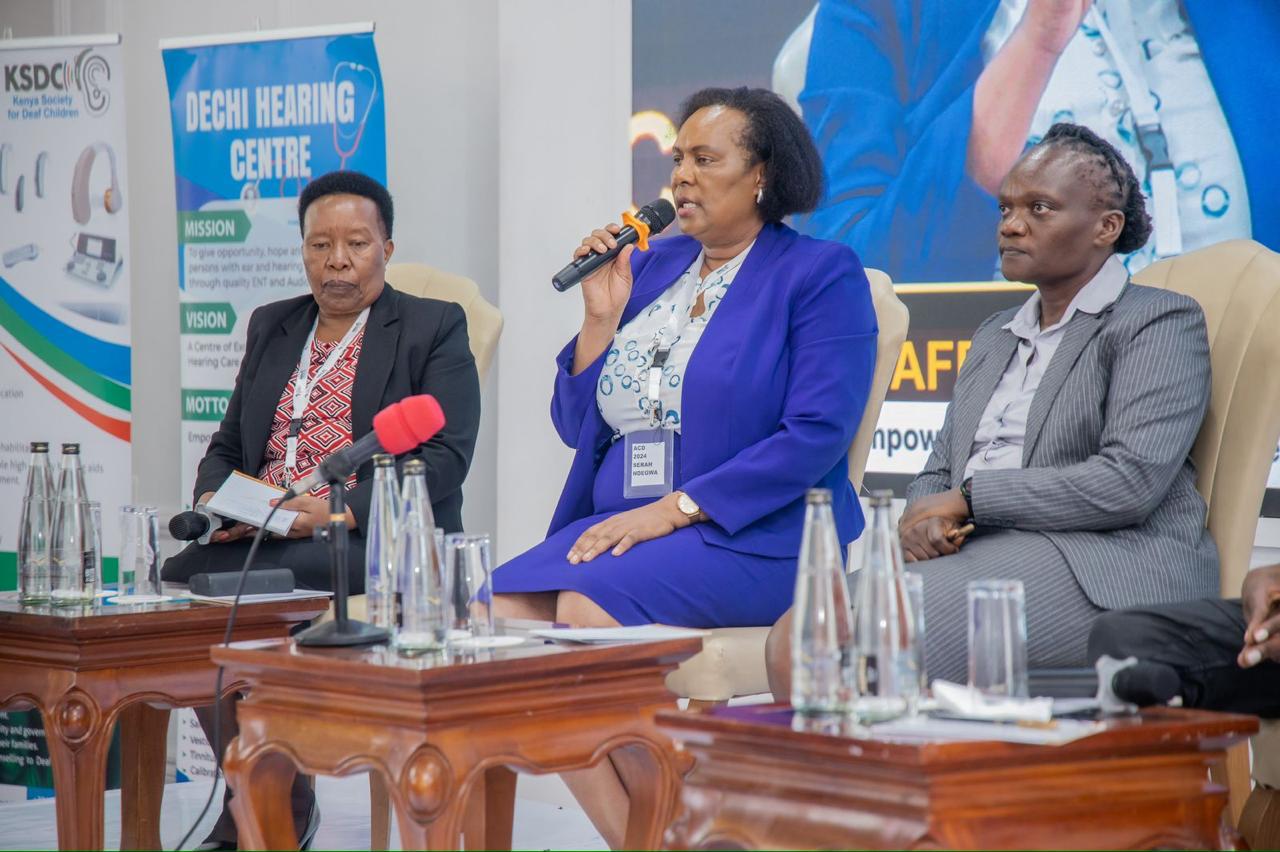
Audiologists urge collaboration to enhance support for children with hearing impairments » Capital News
NAIROBI, Kenya, Nov 28 — The role of collaboration between parents, teachers, and audiology experts in supporting deaf children was underscored during the second day of the Africa Conference on Deafness held in Nairobi.
Madam Rhoda Kabiti, the CEO of the Kenya Society for Deaf Children (KSDC), highlighted the importance of collective efforts in identifying hearing impairments early and ensuring children receive appropriate support.
Rhoda emphasized that overcoming challenges such as language barriers is essential.
Equally important, she noted, is the passion and commitment of teachers in teaching sign language.
She encouraged educators to remain dedicated to their vital role in helping deaf learners thrive.
“Creating an inclusive learning environment for deaf children requires more than just knowledge; it requires compassion and dedication,” Rhoda said on Thursday, stressing the urgency of early identification and intervention.
Lady Justice Nyakundi, the Chief Guest’s Representative, addressed the systemic barriers faced by people with disabilities (PWDs) in accessing justice.
Social stigma
She highlighted that many PWDs, including those who are deaf, often struggle to participate in legal proceedings due to communication challenges and social stigma.
While she acknowledged progress made through various Acts of Parliament to ensure justice for PLWDs, she called for further reforms to make the justice system fully accessible and responsive to the unique needs of individuals with disabilities.
“Access to justice is a fundamental right, yet for many people with disabilities, the process remains out of reach,” Nyakundi said.
“It is time to rethink our approach and make justice truly inclusive.”
Sarah Ndegwa, an audiologist at the conference, spoke about the financial challenges surrounding assistive devices for the deaf.
She underscored the importance of early intervention in addressing hearing loss, noting that delaying treatment can lead to more expensive and complicated solutions later on.
“Investing in hearing solutions early can prevent far greater costs down the road,” Ndegwa said.
“It’s crucial that we prioritize hearing health to avoid long-term financial and social consequences.”
The conference, which brought together experts, advocates, and policymakers, provided a platform for discussing the multifaceted challenges facing the deaf community and the critical need for a more inclusive society.
Participants agreed that through continued collaboration and commitment, progress can be made toward ensuring every deaf child receives the support and opportunities they deserve.
The three-day conference is set to conclude on Friday with a crucial declaration aimed at fostering impactful changes for deaf children.
About The Author